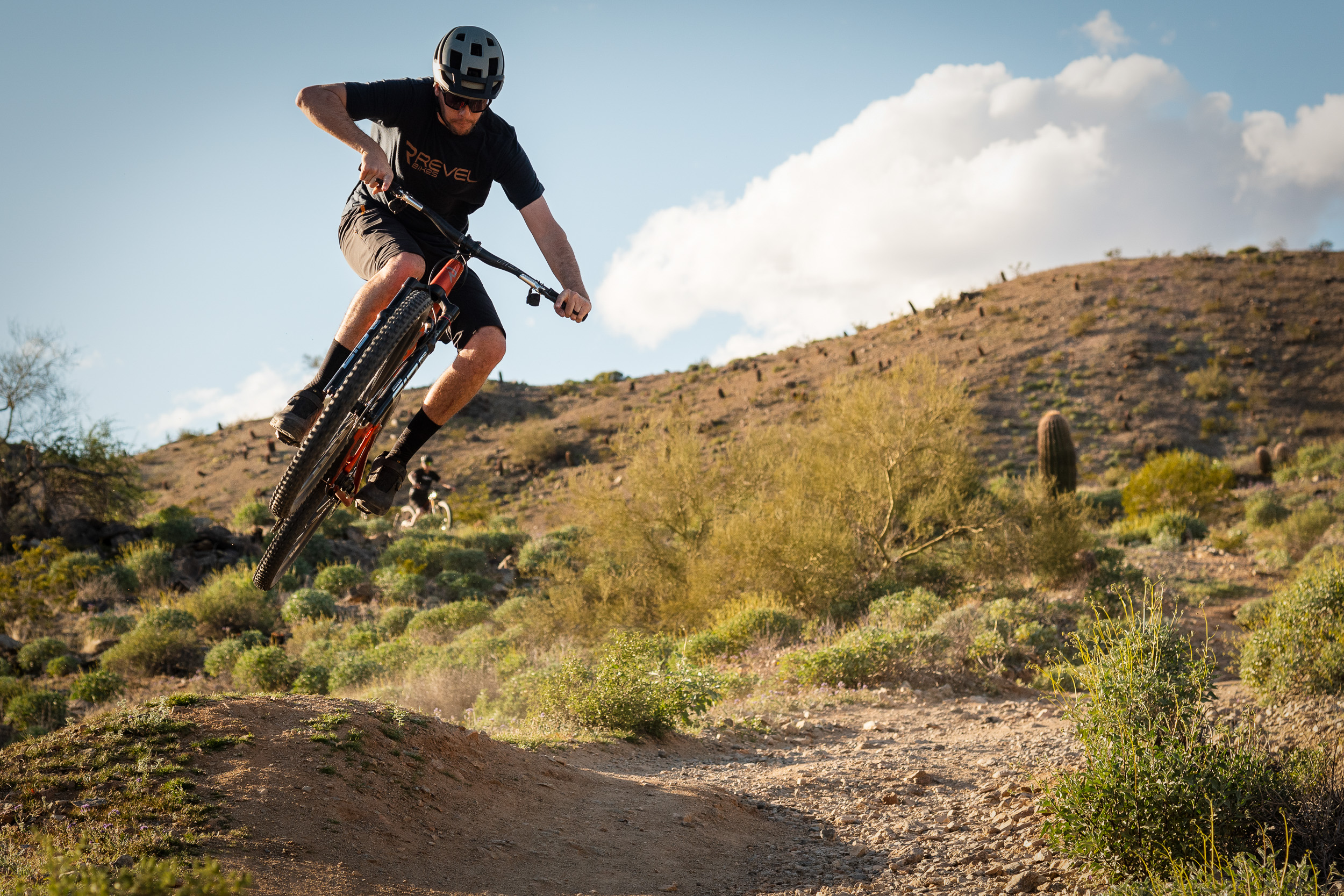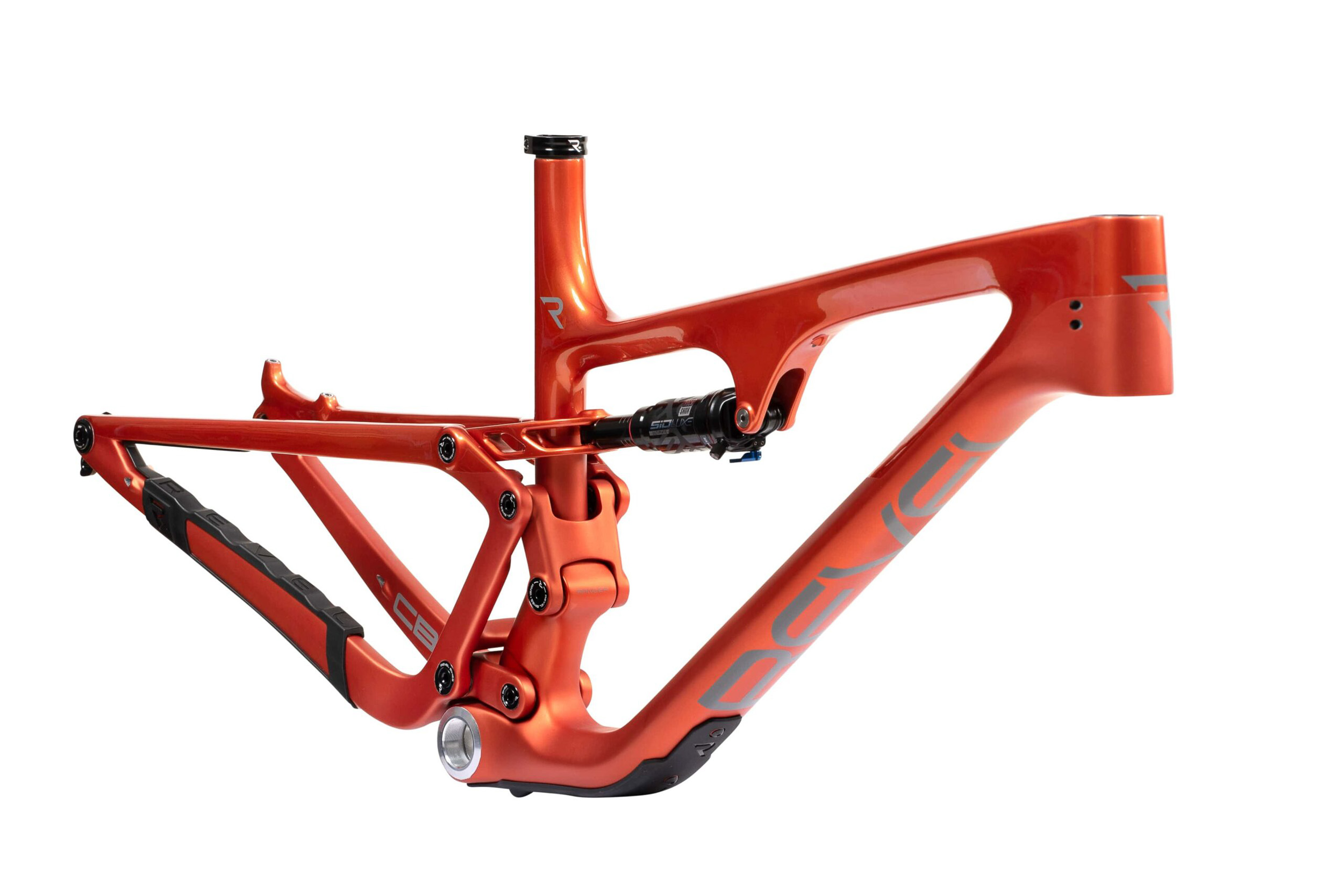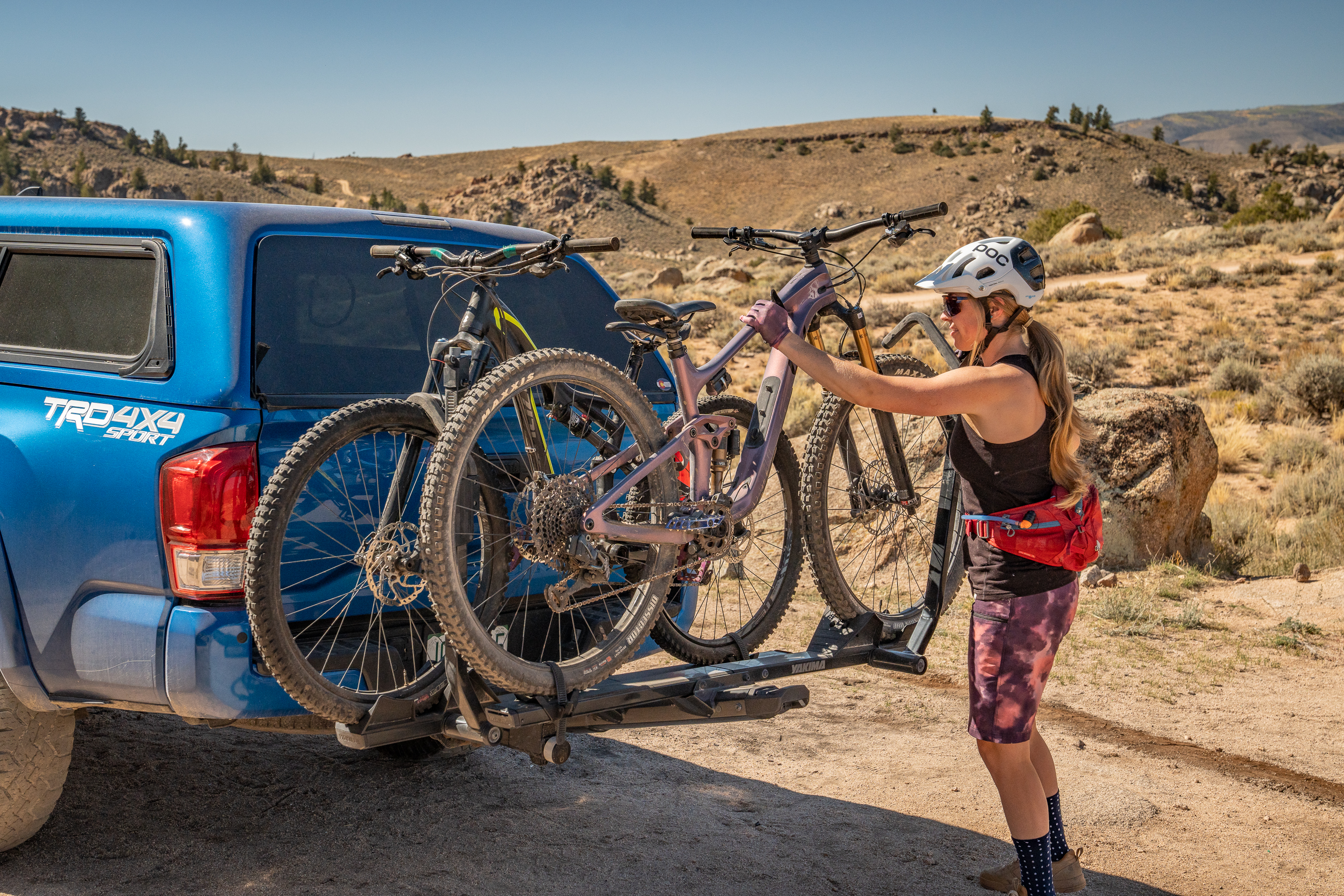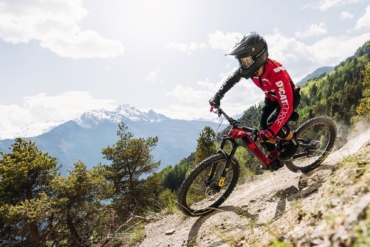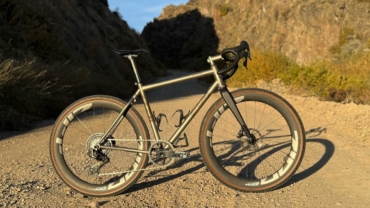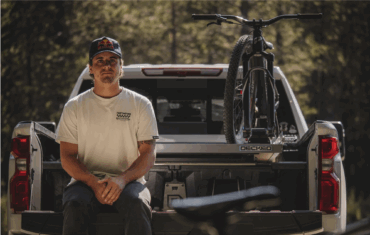Colorado’s Revel Bikes has been making waves and fighting against the giants in the cycling industry. It has gained notoriety with its Canfield Balance Formula (CBF) suspension, thermoplastic wheels, and a one-off thermoplastic downhill frame. The OG Ranger was well-received by mountain biking laureates, including us at GearJunkie.
Revel Bikes released version 2 of the Ranger last year, and I’ve been testing it ever since. For a solid year, I rode the lowest-spec version without regard to the frame’s longevity or its parts. The riding near my home in Hill Country, Central Texas, is hard on bikes. Most trails are littered with limestone rocks and boulders with square edges. The trails punish inconsistencies in handling by both rider and bike.
In short: The Revel Ranger proved a reliable and consistent performer across terrain that was much more challenging than cross-country but not quite the mountainside trails in places like Colorado. The bike wanted to go fast, and as long as the drops weren’t larger than about 3 feet, it handled super-predictably, almost too predictably. The Ranger wanted to get the job done; I flew through sections in record time, but I yearned for a little more fun.
- Frame material: Carbon fiber
- Fork: Rock Shox SID Select+ 120mm
- Shock: Rock Shox SID Luxe Ultimate
- Drivetrain: SRAM GX Eagle, 10-52 cassette
- Wheels: Industry Nine Trail S with 1/1 hubs
- Cockpit: Race Face Aeffect R 35 bars and 40mm stem, SDG Bel-Air Lux saddle, Crank Brothers Highline 7 dropper post
Pros
- Very effective and consistent suspension action
- Feels more capable than a 115mm/120mm suspension travel bike
- Suspension works better when going faster
- Beefy and easily serviced suspension pivot hardware
Cons
- Bike doesn't feel "poppy"
- No storage in frame
The Revel Ranger on Paper
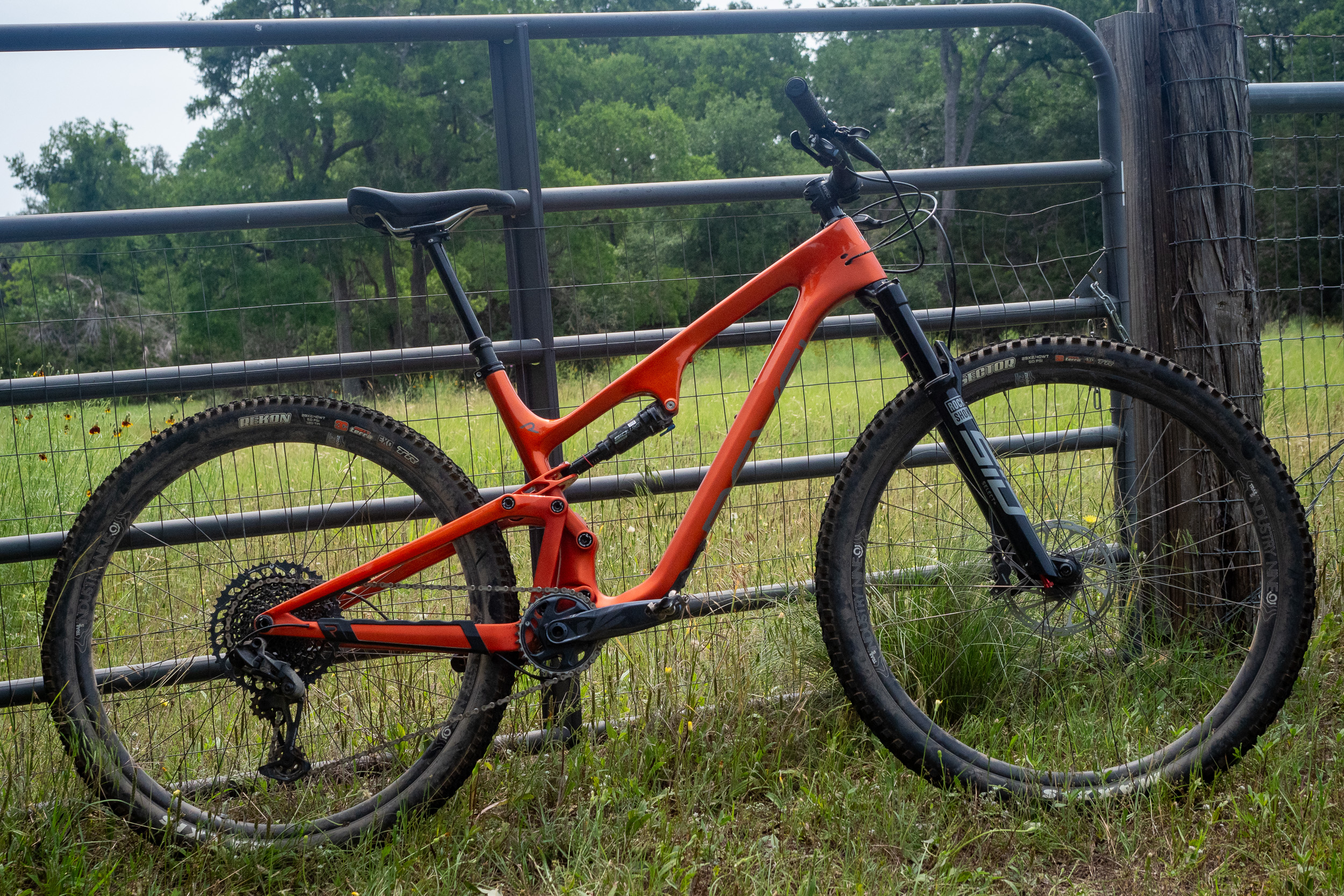
The Frame
First, the new Revel Ranger has the brand’s CBF dual-link suspension, which visibly resembles the lauded DW-Link design. Two short co-rotating links connect the seat tube to the rear triangle, which pushes the shock through a yoke.
All these seemingly complex links and pivots limit the effect of chain tension on suspension action and define the anti-squat and anti-rise (limits suspension movement during acceleration and braking) characteristics. Designs like CBF gain all these attributes at the cost of increased complexity and weight compared to single-pivot bikes that are common for XC-oriented machines and some downcountry models.
The carbon fiber Ranger frame gained several upgrades from the original 2018 Ranger, which GearJunkie loved. All the changes are welcome and address issues the otherwise stellar ride had. Revel kept the front triangle mostly the same but claims a 20% increase in rear triangle stiffness.
New carbon fiber links, larger cartridge bearings, and updated pivot hardware promise greater longevity and less maintenance hassles. All these components only need a single tool for service. Following the trend, Revel also made the new Ranger Universal Rear Derailleur (UDH) compatible and put a handy debris guard to keep rocks out of the lower linkage area. Revel claims a 2.6-inch-wide tire fits between the rear stays.
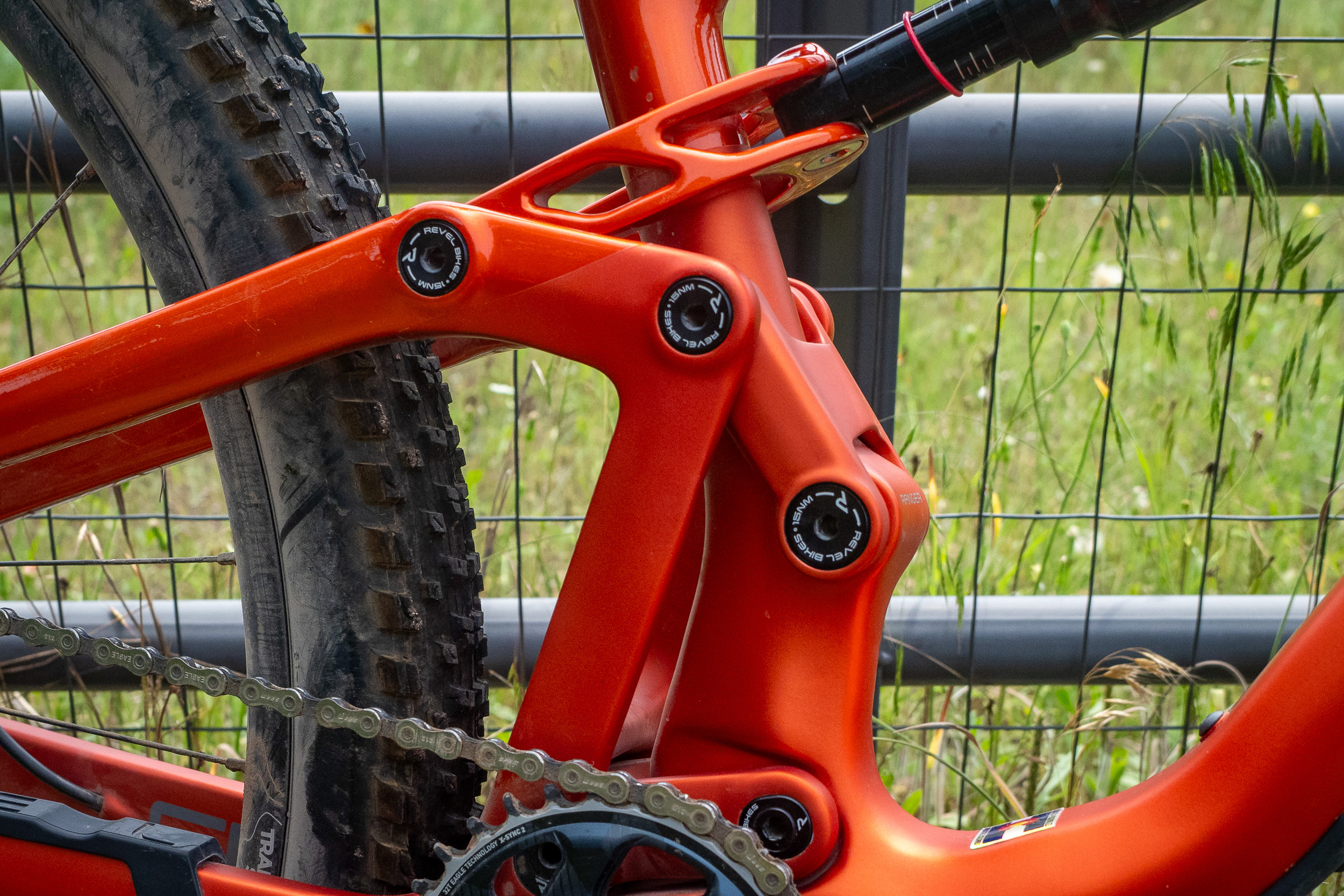
Notably, the seat tube is straight for long enough to handle a long-travel 31.8mm-diameter dropper post. One water bottle mount resides inside the front triangle, and the other is below. Another set of bosses on the upper downtube makes a good spot for stashing a repair kit or similar.
Cable routing is internal rearward of the headset, which I prefer, as going through the headset opens up so much pain factor for little if any, “aero” gains. And, thankfully, guide tubes route the cable housing or brake hose correctly. I wish every brand did this. Revel also applied generous armoring on the bottom of the downtube and drive-side chainstay.
Predictably, the chassis geometry threads the gap between an XC MTB and a Trail MTB. A long-ish effective top tube with a short-ish chainstay in mated to moderate head tube and seat tube angles. And, as is the fashion these days, a short 40mm stem and 44mm fork offset round out the front end.
Finally, a 338mm bottom bracket height rounds out the category-spitting downcountry machine. One omission that doesn’t bother me (but might bother some) is the lack of in-frame storage for spare tubes, tools, etc.
The large Revel Ranger GX Eagle build weighs a verified 28 pounds, set up tubeless, without pedals.
Components
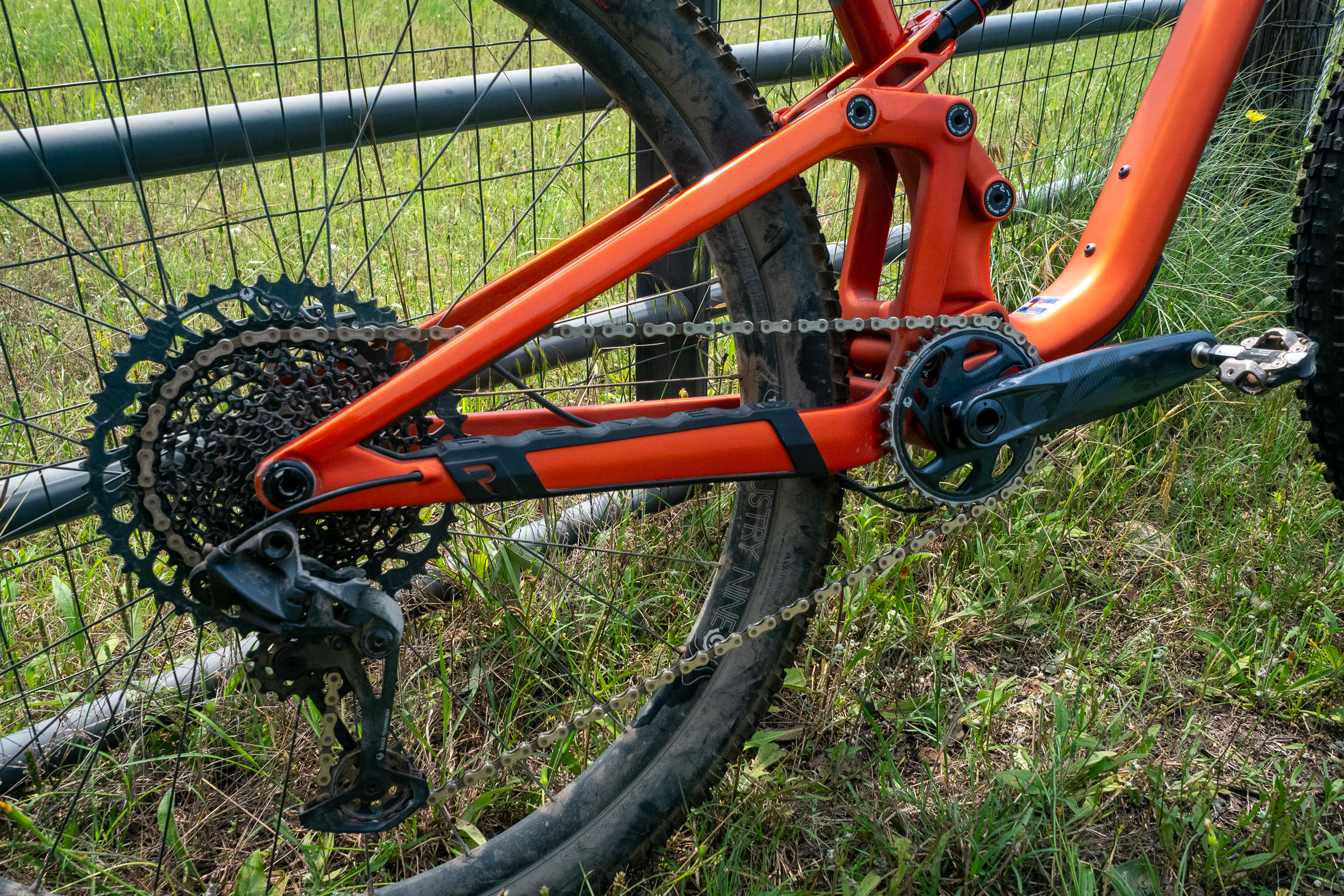
My Revel Ranger GX Eagle spec tester retails for an MSRP of $5,499. For that, you get proven components that work and are reliable, but they lack the bling factor that can make an MTB cost twice as much.
Most importantly, this GX Eagle level bike has a RockShox SID Select 120mm fork mated to a RockShox SID Luxe Ulitmate shock that delivers 115mm of rear wheel travel. I’ve tested a lot of bikes with this exact setup and was pleased all around. I expected the same out of the Ranger.
These suspenders control Industry Nine Trail S wheels with 1/1 hubs and aluminum rims, which I considered a reasonable cost-cutter with the advantage of potentially much greater longevity. A Maxxis Dissector Front/Rekon Rear 2.4″ tire combination promised confidence, as I’ve tested a lot of bikes with the tire combination, and they never disappointed when the trails weren’t concrete hard.
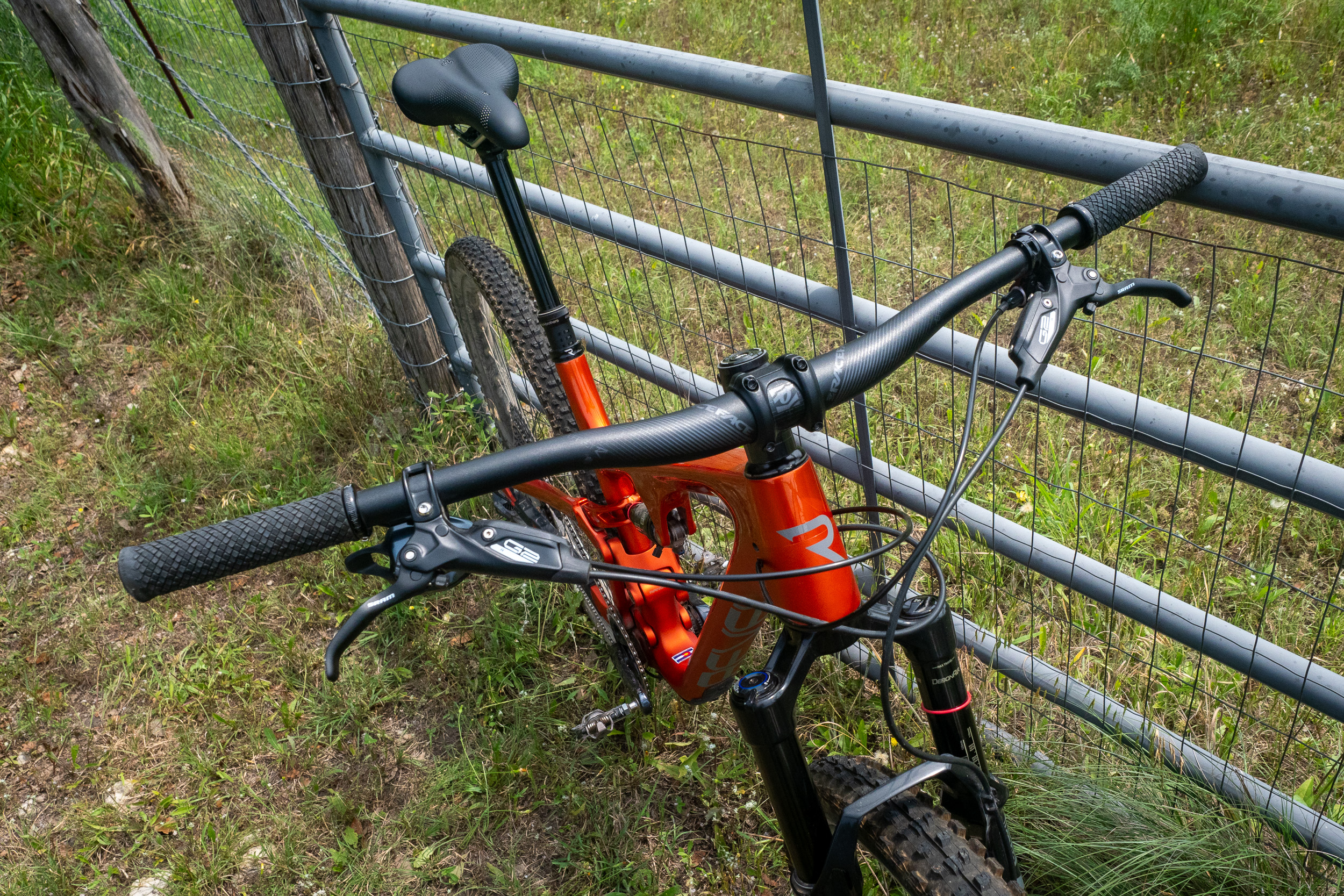
A mechanical SRAM GX Eagle drivetrain with alloy cranks and a 10-52 cassette handles power delivery and shifting, while a Crank Brothers Highline 7 dropper post, WTB Volt saddle (SDG Bel-Air-Lux is the current spec), Race Face Aeffect R35 bar, and stem round out the rider cockpit. SRAM G2R brakes with 180mm front/160mm rear rotors provide stopping power.
The Revel Ranger on the Trails
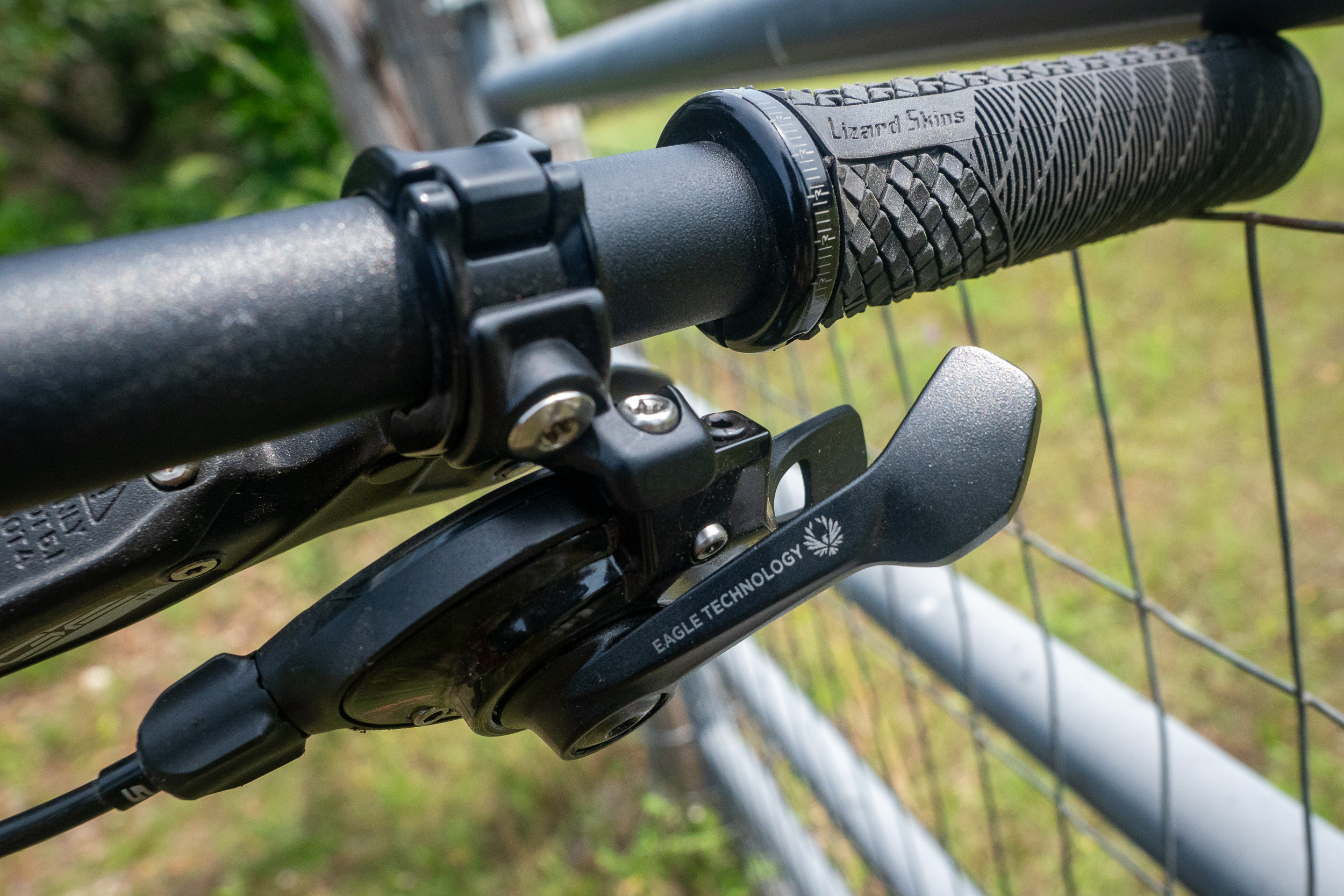
Chassis Performance
First, everyone I encountered on the trails was instantly enamored by the bright orange “Tang” color scheme on my Revel Ranger tester. Revel also offers a more inconspicuous “De La Coal” version.
Right away, I felt fast on sections that had up to softball-sized rocks; the bike handled the rough in an almost eerily imperceptible manner. I didn’t mentally need to be at DEFCON 5 even though I was going as fast as possible. I realized I was rather relaxed, the Ranger bouncing predictably with zero surprises.
Incredibly, it felt like this after the initial suspension setup with the recommended sag and air pressures. That rarely happens for me.
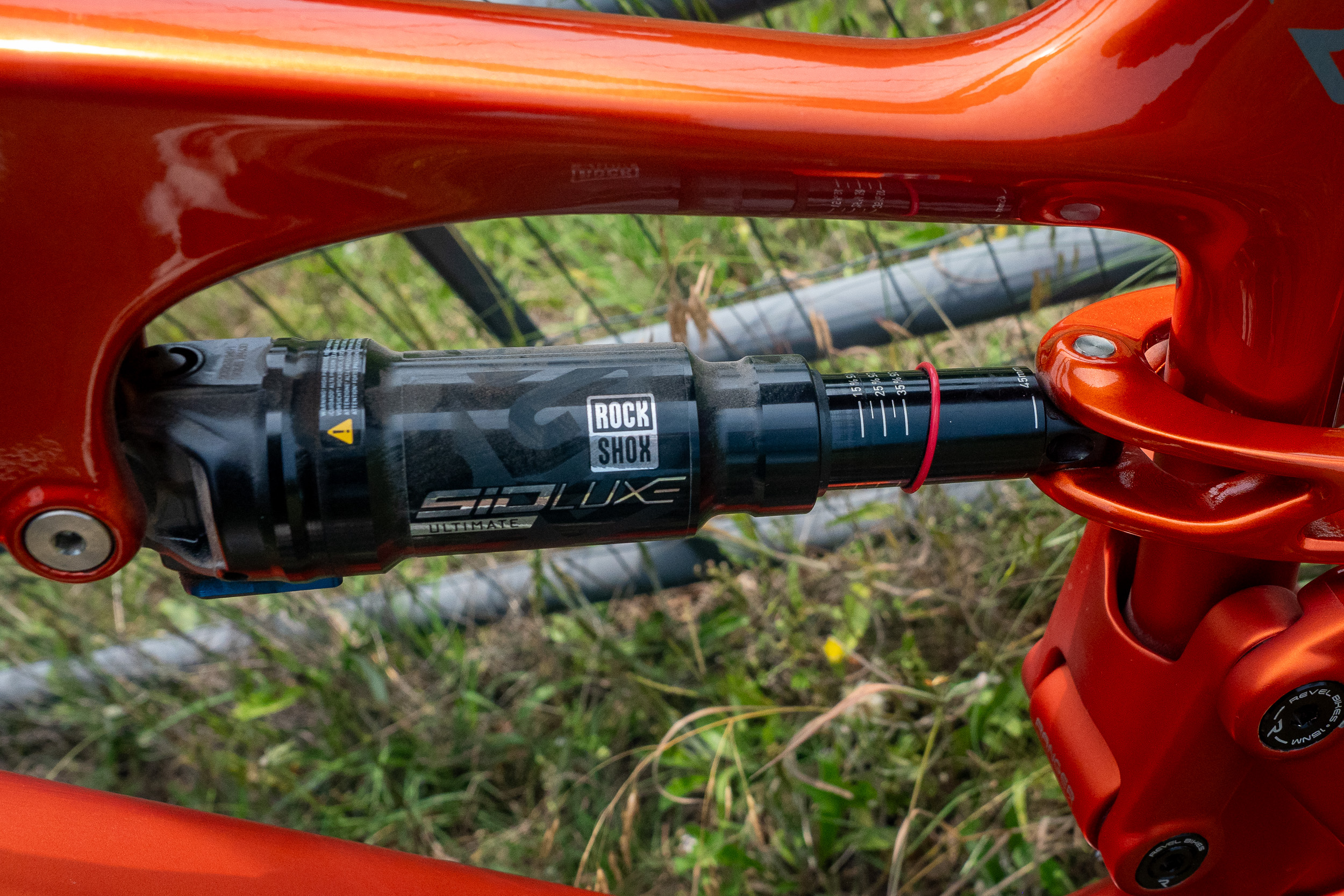
The faster I went, the better the suspension functioned. The mid to deep parts of the rear suspension travel were particularly calm, with predictable compression damping and especially rebound. I rarely bottomed the shock, and it was again predictable when I did. The fork was similar in action, steady and consistent.
Not once did I curse the SID Select+ fork, which I tend to do, even if it’s my fault. I like to blame forks. The entire suspension package was impressive, especially given the lower spec. And, also rare for me, I felt the Revel Ranger punched above its suspension travel numbers. The box might say 115mm rear and 120mm front travel, but the bike felt more capable than most in this category when it came to gobbling up rock gardens.
The Ranger was also a special bike when it came to front-to-rear balance. I can normally feel the shock or fork overpowering the other right away, and I adjust the air pressure and clickers accordingly to get the correct balanced feel. But I didn’t have to do that with this bike. It was balanced from the get-go, and I never felt the need to change from my initial settings.
The suspension bobbed a bit during seated pedaling, even on the flats, but it was negligible. I never felt the need to lock out the suspension on dirt.
I accepted this amount of movement in exchange for how nonchalantly I could ride the bike in the rough. Yes, I’ve ridden bikes with better anti-squat when pedaling, but not with the same consistent and reliable suspension performance when it mattered.
Component Performance
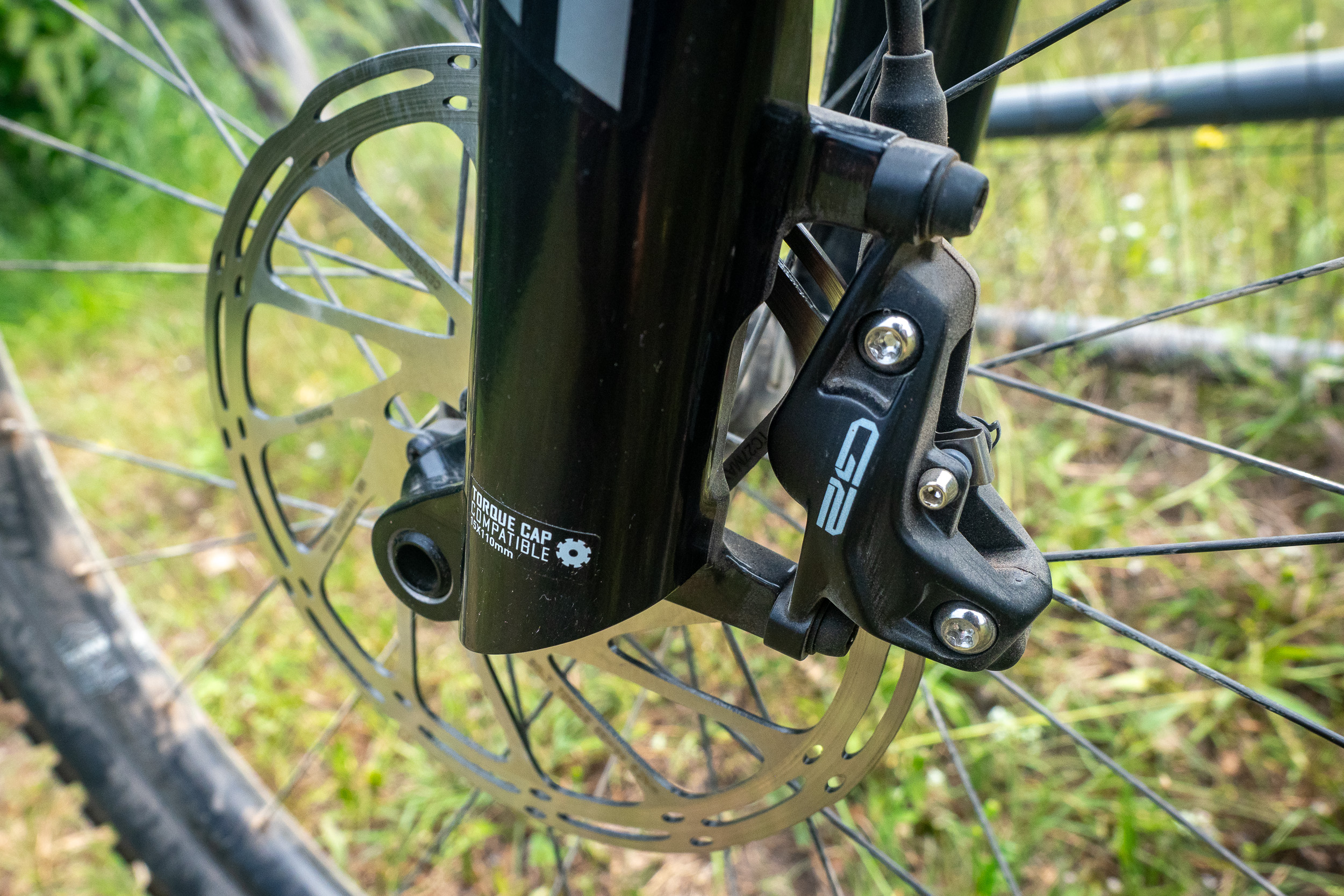
The brakes were … there. They weren’t bad; they weren’t great. They quietly did their job. I didn’t notice them except on super-steep and long downhills when I wished for a tad more power from the front binder. But this could be solvable with a simple pad swap. I didn’t have any reliability or maintenance issues with them for the entire year-long testing period.
The same can be said for the SRAM GX Eagle drivetrain. For a mehcanical group, it admirably shifted without issue. Again, I didn’t notice anything about the shifting; I never missed a shift, and I never had to touch it outside of cable tension adjustments during the first few rides. The same goes for the Crank Brothers Highline 7 dropper post. It still operates as smoothly as it did on the first ride.
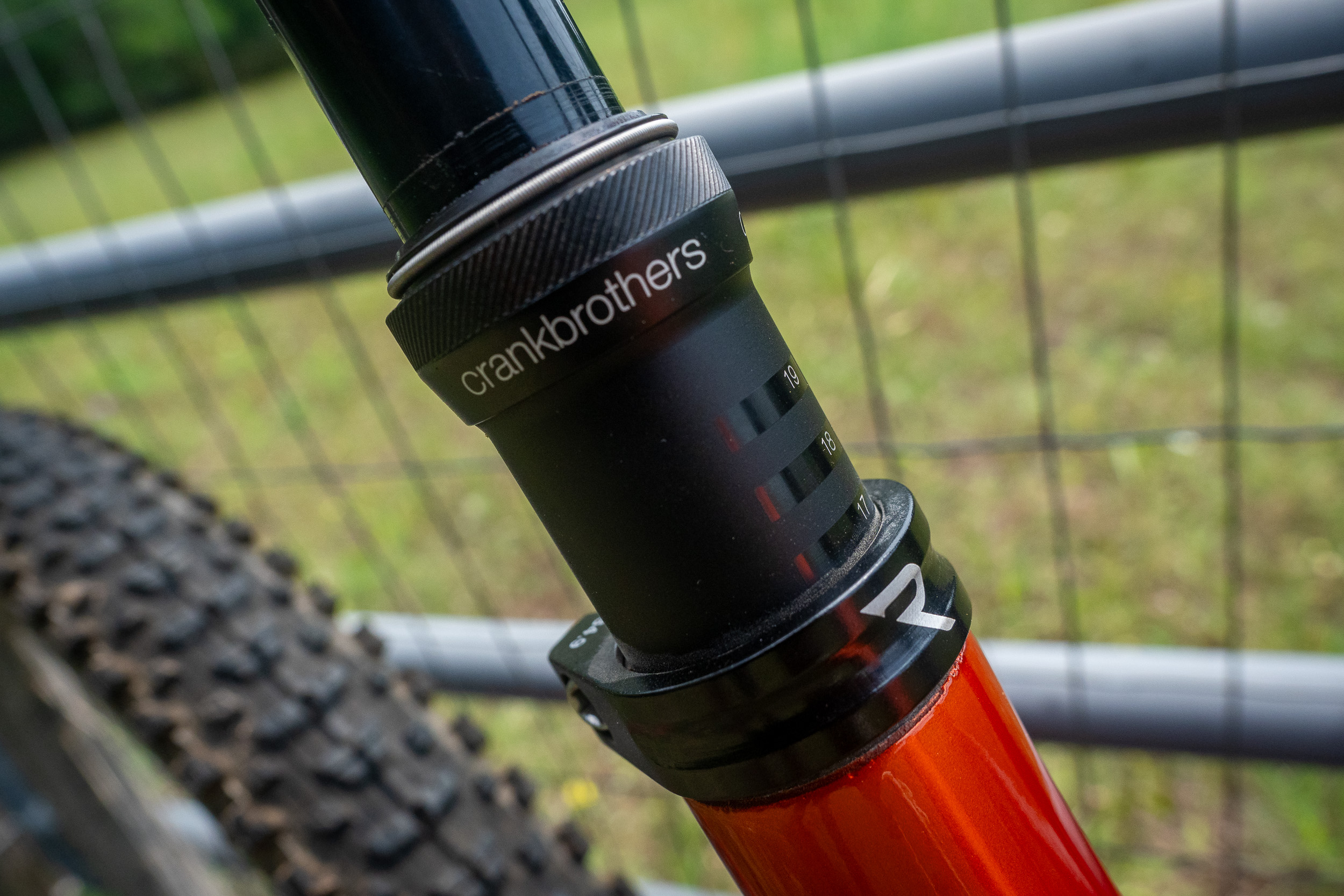
The Maxxis Dissector EXO and Rekon EXO combo worked well when the dirt had a bit of moisture, which was, fortunately, the case this past fall and winter. Whether accelerating, braking, or on lean, I felt planted and confident, and the tires felt perfectly suited for the terrain I felt the Ranger was best at tackling.
Only during the summer, on trails baked to concrete and covered in talcum dust, did I want different rubber. I also never once flatted or cut the casing, which I’ve done plenty of times on sharp limestone.
Conclusions on the Revel Ranger
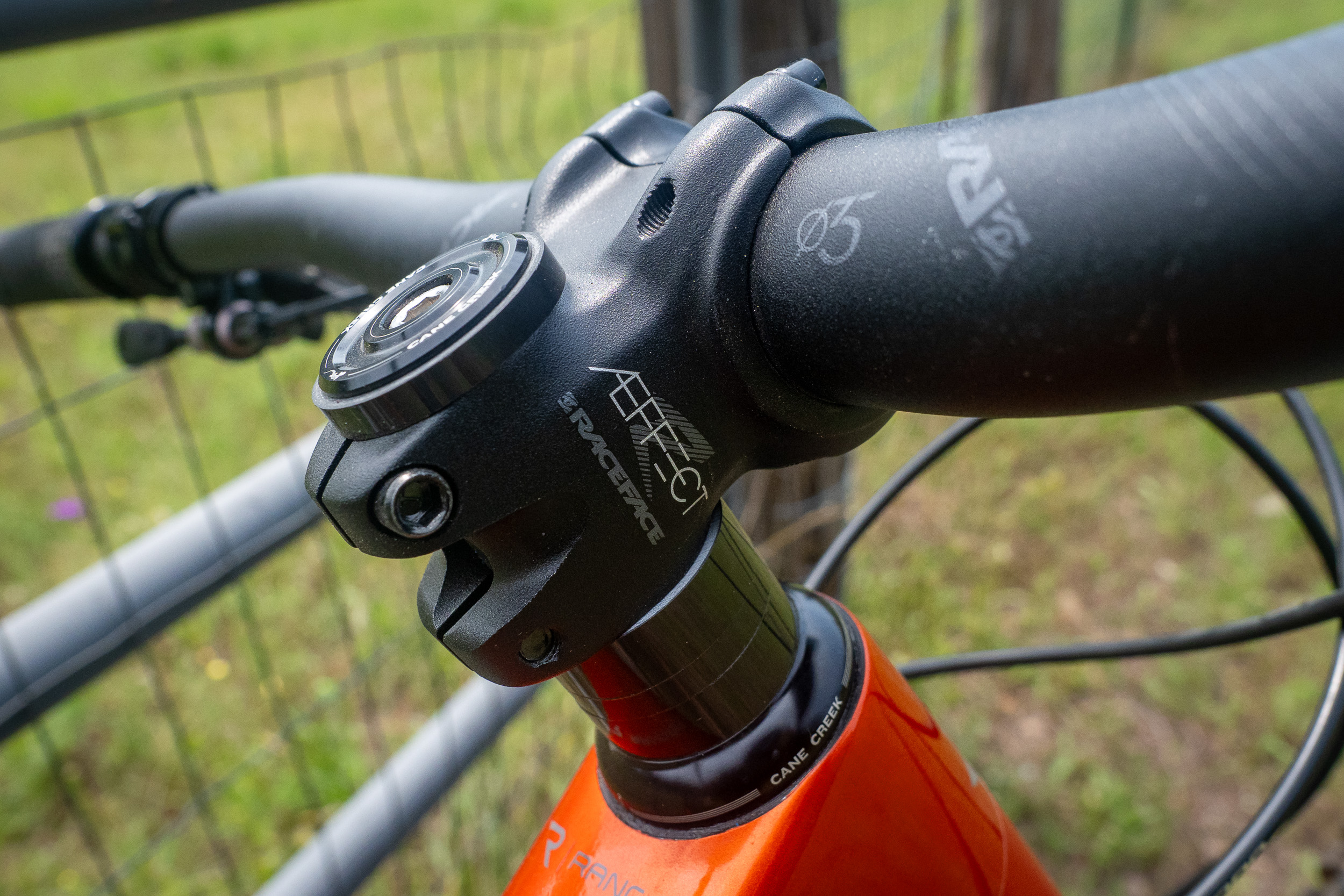
It’s my job as a bike tester to complain about a bike when I can; I need to tease out potential pain points for the reader. But I don’t have any for the Revel Ranger. Nothing stood out as a negative worth worrying about, especially for the spec level and price.
Anything I could potentially want to change was significant, to the point where it would mean buying a higher-level spec from Revel. I couldn’t point out a reason to shop around. This is a solid buy with no real downsides for the price point.
But … if I had to say one thing, it’s this. The Revel Ranger was so good in the suspension department that it made going fast on trails I had dialed almost boring. The only thing left to do was go faster, and my fitness ran out. There was never an “I almost ate it” story, nor did I hardly bounce off line.
The rear suspension didn’t beg me to pop over any obstacle; it just wanted me to get through as efficiently and quickly as possible. No fanfare, no hype.
If the Revel Ranger were a car, it would be a high-trim-level Honda Accord. For sure, a nice ride; effective, efficient, no wasted anything. As reliable as can be. It will get you there, for a super long time.
Do you brag about it? Maybe not. But you reliably get to where you need to go every time. If you want to go fast, it will without making a fuss. It’s your ride-or-die without the skull-and-crossbones vibe. Yeah, the Revel Ranger was like that. Plus, it comes in Tang!
